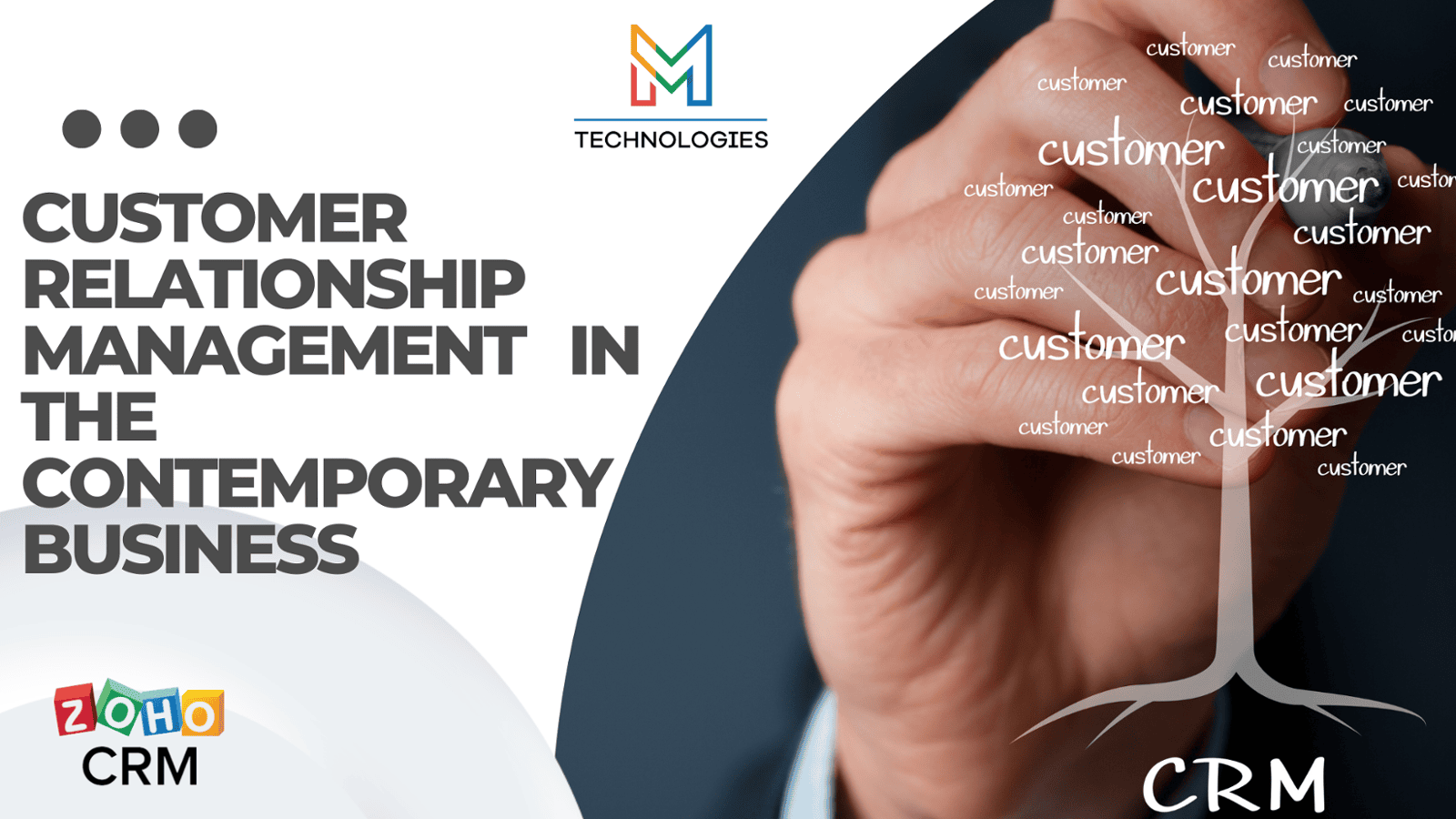
CRM: Customer Relationship Management in the Contemporary Business
Introduction
The term "customer relationship management" (CRM) describes the methods, procedures, and tools that businesses employ to track and evaluate consumer interactions and information during the course of the customer lifecycle. Enhancing customer service interactions, helping to retain customers, and promoting sales growth are the objectives. CRM systems gather information from several channels of contact, such as a business's website, phone, email, live chat, promotional materials, and social network accounts..
The relevance of CRM in today's business environment cannot be overstated. With the increasing importance of customer satisfaction and loyalty, businesses are turning to CRM systems to gain insights into their customers' needs and behaviors. The evolution of CRM technology, from simple customer databases to sophisticated AI-powered platforms, reflects the growing complexity and importance of customer relationship management.
Types and Categories of CRM
Operational CRM seeks to improve and automate business processes related to customer interaction and support.. It includes marketing automation, service automation, and sales force automation.
Sales Force Automation : Manages the sales process, tracking customer interactions and automating sales tasks to increase sales efficiency.
Marketing Automation : Streamlines marketing processes, automating tasks such as campaign management, email marketing, and lead management.
Service Automation : Enhances customer service by automating service requests, complaints, and issue management.
Analytical CRM
Analytical CRM involves the collection, analysis, and application of customer data to enhance decision-making.
Data Analysis : Analyzes customer data to identify patterns and insights.
Customer Segmentation : Divides customers into groups based on data analysis to target marketing efforts more effectively.
Predictive Analytics : Uses data mining and machine learning techniques to predict future customer behaviors and trends.
Collaborative CRM
Collaborative CRM focuses on the direct interaction with customers, including feedback and issue resolution.
Partner Relationship Management : Manages relationships with partners and resellers.
Customer Interaction Management : Coordinates customer interactions across various channels.
Channel Management : Manages distribution channels and ensures consistent customer experience across all channels.
Benefits of CRM
Implementing a CRM system offers numerous benefits that can significantly enhance business performance:
Enhanced Customer Satisfaction : By providing better service and personalized interactions.
Improved Customer Retention : Through consistent and meaningful engagement with customers.
Increased Sales and Revenue : By identifying and nurturing potential leads more effectively.
Better Internal Communication and Collaboration : Facilitating information sharing across departments.
Streamlined Business Processes : Automating routine tasks and workflows, freeing up time for strategic activities.
Key Features of CRM Systems
Modern CRM systems come with a variety of features designed to meet the diverse needs of businesses:
Contact Management : Centralizes customer information, enabling easy access and management of customer data.
Sales Management : Tracks the sales pipeline, forecasts sales, and manages opportunities.
Marketing Automation : Automates marketing tasks, campaigns, and lead management.
Customer Support : Manages customer service requests, ticketing, and support interactions.
Reporting and Analytics : Provides insights through detailed reports and dashboards.
Mobile CRM : Allows access to CRM data from mobile devices, ensuring productivity on the go.
Implementing a CRM System
Implementing a CRM system involves several critical steps to ensure success:
Assessing Business Needs : Understanding specific business requirements and goals.
Choosing the Right CRM Solution : Selecting a CRM system that aligns with business needs and budget.
Planning the Implementation Process : Developing a detailed implementation plan.
Training Staff : Ensuring all users are adequately trained to use the CRM system.
Evaluating Success Metrics : Monitoring and evaluating the effectiveness of the CRM system post-implementation.
Challenges in CRM Implementation
While CRM systems offer significant benefits, their implementation can pose several challenges:
High Initial Costs : The investment required for CRM software and implementation can be substantial.
Employee resistance to change could prevent them from embracing new procedures and systems..
Data Integration Issues : Integrating CRM with existing systems can be complex.
Ensuring User Adoption : Ensuring that all users fully adopt and utilize the CRM system.
Maintaining Data Quality : Ensuring data accuracy and consistency within the CRM system.
Case Studies
Successful CRM Implementation in Small Businesses
Small businesses can greatly benefit from CRM systems. For example, a local bakery used CRM to track customer preferences and order history, resulting in improved customer satisfaction and increased repeat business.
CRM in Large Enterprises
Large enterprises often implement complex CRM systems to manage vast amounts of customer data. A global telecom company used CRM to unify customer data across regions, resulting in improved customer service and streamlined operations.
Industry-Specific CRM Use Cases
Different industries have unique CRM needs. In healthcare, CRM systems are used to manage patient information and improve care coordination. In retail, CRM helps manage customer loyalty programs and personalized marketing.
Future Trends in CRM
The future of CRM is being shaped by several emerging trends:
AI and Machine Learning : Enhancing CRM capabilities with predictive analytics and automation.
Integration with IoT : Linking IoT devices and CRM systems to provide more comprehensive consumer data.
Enhanced Personalization : Using advanced analytics to provide highly personalized customer experiences.
Voice-Enabled CRM : Integrating voice assistants for hands-free CRM interaction.
Mobile and Social CRM : Increasing use of mobile devices and social media integration in CRM strategies.
Expert Insights
Interviews with CRM experts highlight the importance of selecting the right CRM system and focusing on user adoption. Experts recommend starting with a clear strategy and involving all stakeholders in the implementation process.
Conclusion
In conclusion, CRM systems play a crucial role in modern business by enhancing customer relationships, improving business processes, and driving sales growth. Businesses should carefully assess their needs, choose the right CRM solution, and plan for successful implementation to reap the full benefits of CRM.
